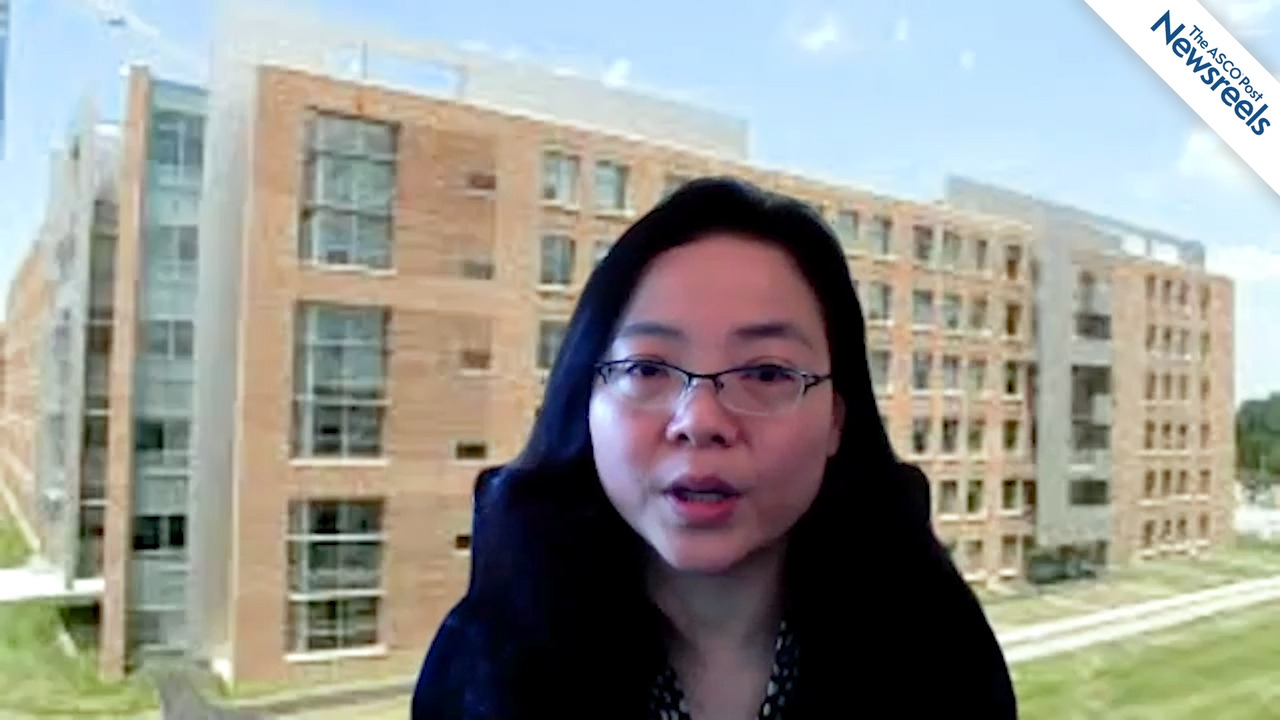Byoung Chul Cho, MD, PhD, on NSCLC: Genetic Mutations and Immunotherapy vs Chemotherapy in KEYNOTE-042
AACR Virtual Annual Meeting 2020 I
Byoung Chul Cho, MD, PhD, of Yonsei Cancer Center and Severance Hospital, discusses the STK11 and KEAP1 mutations in non–small cell lung cancers, and their relationship to the efficacy of pembrolizumab monotherapy vs platinum-based chemotherapy as first-line treatment for PD-L1–positive advanced disease (Abstract CT084).
The ASCO Post Staff
Ryan J. Sullivan, MD, of Massachusetts General Hospital Cancer Center, discusses early results on COM701, a first-in-class immune checkpoint inhibitor, which showed preliminary antitumor activity as a monotherapy and in combination with nivolumab in a variety of heavily pretreated patients with advanced or metastatic solid tumors (Abstract CT031).
The ASCO Post Staff
Nickolas Papadopoulos, PhD, of Johns Hopkins Medicine, discusses a first-of-its-kind prospective study that evaluated a screening blood test in more than 10,000 older women with no history of cancer. The test, called DETECT-A, identified 10 different cancer types, 65% of which were early-stage disease (Abstract CT022).
The ASCO Post Staff
Andrew X. Zhu, MD, PhD, of Massachusetts General Hospital, discusses an exploratory analysis seeking to identify tumor-based molecular biomarkers that may be associated with clinical response or resistance to the combination treatment of atezolizumab and bevacizumab in patients with advanced hepatocellular carcinoma (Abstract CT044).
The ASCO Post Staff
Edward B. Garon, MD, of the University of California, Los Angeles David Geffen School of Medicine, discusses KEYNOTE-189 trial findings that showed adding pembrolizumab to pemetrexed plus platinum—which previously was found to improve overall and progression-free survival—is also safe and has manageable toxicity in long-term use for patients with metastatic nonsquamous non–small cell lung cancer (Abstract CT085).
The ASCO Post Staff
Qi Liu, PhD, of the U.S. Food and Drug Administration, discusses data that suggest that patients with advanced non–small cell lung cancer who had a past medical history of pneumonitis were more likely to experience treatment-associated pneumonitis in response to immune checkpoint inhibitors or chemotherapy (Abstract CT086).





